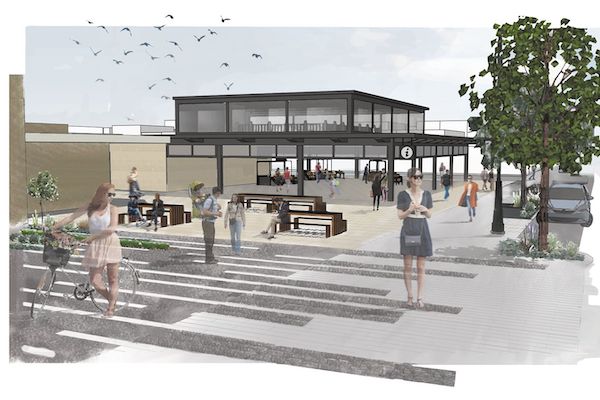Master's in Urban Planning: a program for students from a variety of fields
- Planning your academic journey
Nelly Salen

The Master's in Urban Planning is intended for students interested in urbanization and the city, its development and planning, both in advanced modern societies and in emerging or developing countries.
Most Master's students don’t come from a Bachelor's degree in Urban Planning and this is often overlooked. Jean-Philippe Meloche, Program Director since June 2019, says they come from a wide variety of fields and study programs.
The Master's degree is for students who don’t have a Bachelor's in Urban Planning, but who would like to become urban planners. Any field can lead to urban planning.
– Jean-Philippe
Yes, you read that correctly. That means that even you, with your Bachelor's degree in Communications (or anything), could move on to a Master's in Urban Planning! In fact, that's what Simon Chouinard-Laliberté did when he enrolled in the Master's in Urban Planning after his Bachelor's in Political Science. Today, he is a project manager at the Centre d'écologie urbaine de Montréal (CEUM).
The former director of the UdeM School of Urban Planning and Landscape Architecture (and current full professor), Franck Scherrer, said at the program's orientation session: "You understand urban planning now, but you will soon understand that you don't really understand."It's the start to being confronted with issues that you've never had to face.
– Simon
Not everyone is prepared to understand multi-dimensional issues, project-based learning and basic knowledge. That’s why the 15 preparatory course credits, which may be required in some cases, are one of the strengths of the program. What’s more, they help make it even more open and give students from all backgrounds an opportunity to join the Master's program.
This openness is one of the strengths of the program. Maude M. Léonard, a graduate of the program and now a practical training officer for the Bachelor's in Urban Planning (as well as a project manager at l'Enclume), describes this philosophy as a plurality of cross perspectives, due to the diversity of the students' skills and learning.
Cross perspectives make the way we approach the territory richer and more interesting.
– Maude
A diversity that bears fruit, especially in workshops and group work! The Master's in Urban Planning method of learning helps students develop their knowledge through workshops as well as more theoretical courses. Professors and professionals from the practical environment (municipalities or others) come to present their issues and problems, and students work on these concrete projects in workshop teams. This education is very similar to the real job market and real teamwork: everyone brings a different skill set and the urban planner often plays the role of mediator between the various stakeholders.
This method of learning is a key asset of the Master's in Urban Planning. Any learning at the Bachelor’s level is an interesting toolbox that the Master's in urban planning will enhance.
– Jean-Philippe
The Master's degree, which takes about two years (between 45 and 60 credits), is an education, accredited by the Ordre des urbanistes du Québec, that leads to very good jobs in the job market. The workshops develop links with municipalities and professionals and build solid bridges for students' future career paths. Students can also count on the professors, who are available and attentive, to direct them to contacts or to help them advance a project, among other things.
Our placement rates for quality jobs are excellent. City planners at the City of Montreal enjoy extraordinary working conditions.
– Jean-Philippe
In urban planning, you can do all sorts of things. You can create your dream job out of very diverse interests because it touches on very broad areas.
– Maude
Urban planning is a constantly changing profession, “in part because of the challenges we face as a society, the environmental issues and the economic needs related to the functionality of cities and their organization” (especially at a time of confinement and social distancing due to COVID-19), says Simon. “The School of Urban Planning is very attentive to these changes and the team is evolving along with it.”
This change will place the urban planner at the heart of current and future societal issues. Curious, mediating and rigorous: that is the typical profile of sought-after urban planning professionals.
Nelly est étudiante au baccalauréat de communication. Malgré son emploi du temps bien rempli, elle fait une place de choix à sa passion : la création. La tête pleine de rêves et d’idées, elle voit Montréal comme une ville où elle peut épanouir son âme d’artiste.
